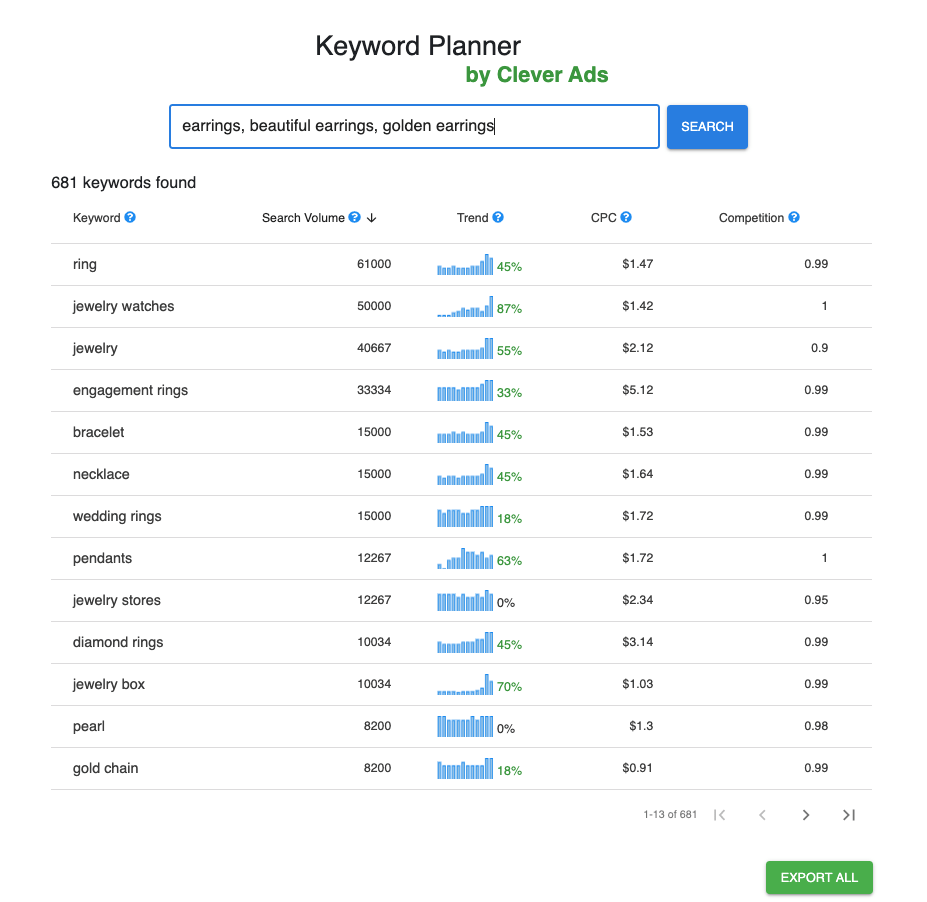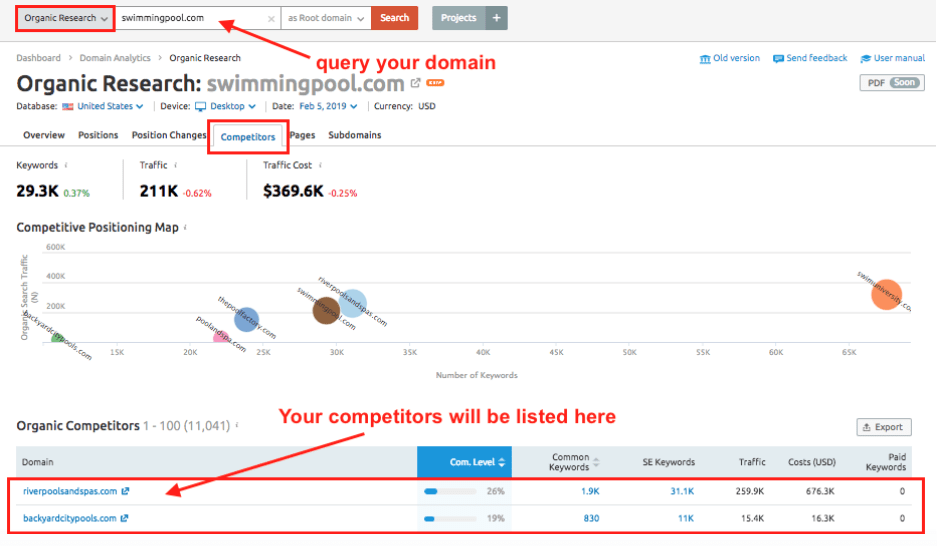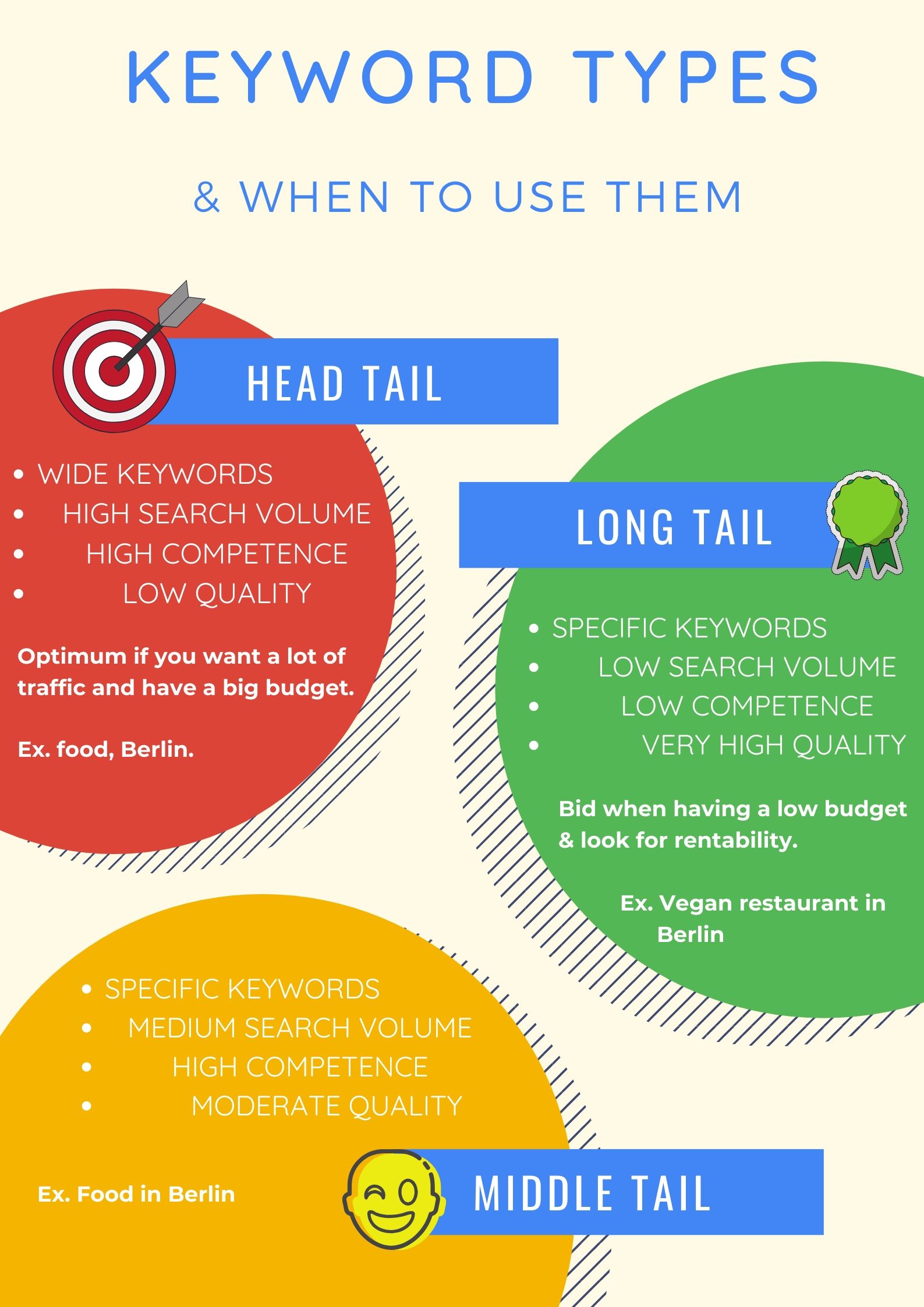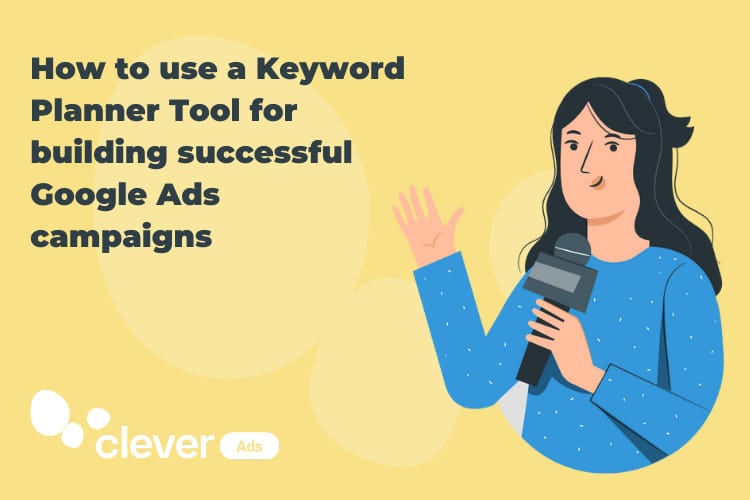How to use a Keyword Planner Tool for building successful Google Ads campaigns.
There are many reasons why you should use a keyword planner tool. For one, keywords are important for positioning your site in terms of SEO, SEM, and even social media. Whatever strategy you choose to implement, you need to use a keyword planner tool that will allow you to discover which keywords fit your content and site. This will ultimately allow you to position it so your buyer persona finds you.
One of the biggest challenges for entrepreneurs and bloggers is choosing the keywords that best fit their product and bring in quality traffic to their site. In this post we want to show you everything you need to know to choose the best keywords possible so your blog or website can succeed online. You must first ask yourself, which Keyword Planner tool should I use?
Which Keyword Planner Tool should I use?
There are many keyword tools available online, but some of them will fit your needs better than others depending on your objectives and goals. Let’s check some of them out so you can choose the one you feel more comfortable with:
Clever Ads Keyword Planner Tool
This keyword planner tool allows you to get keyword ideas from more than 7 different networks, not just Google. Also, this option doesn’t require you to have a Google Ads account.
It’s specifically designed for suggesting the best keywords for CPC strategies, offering you the most important data related to those keywords for you to make the best marketing decisions. The two main differences between this keyword planner tool and others are:
(1) It offers all the information for while making sure that nothing is being left out.
(2) You can search for keyword suggestions by entering a URL and by entering several keywords.
Google Keyword Planner Tool
Google has a free Keyword Planner tool available in the Google Ads accounts, so users get some help when choosing the best keywords for their campaigns. The only potential problem with this keyword planner tool is that you need to create a Google Ads account to use it and it’s more complicated to understand at first.
Steps to get the most out of any Keyword Planner Tool
#1 Enter the URL or the bunch of keywords you want to get ideas from in the Keyword Planner tool search bar.
For performing a complete keyword research and correctly choose your keywords, you need to look closely to the metrics that goes together with them. A good keyword planner tool should provide you with the following metrics:
Monthly search volume
Is the average number of times people have searched for that keyword per month, showing the popularity of those specific search terms. This metric is one of the most important you should get from any keyword planner tool. If you bid for a keyword with a lot of monthly searches your ad will potentially have a much higher chance to show up, making your target audience wider.
However, you won’t always want to bid for keywords with the highest search volume possible, as they may be expensive. You will have already set a maximum CPC you want to bid for and then select the keywords with a higher monthly search volume.
Tip: watch out for seasonal keywords (ex. Christmas decorations, Halloween masks, etc.). These keywords may get 60k searches during one month and 50 searches the rest of the year, but the monthly search volume will say these terms get 5K searches per month, which is not correct.
Trend Evolution
Is there a trend the keywords have followed the last twelve months? You’ll be able to detect if the keywords search volume will increase or decrease over the time. You will want to choose keywords with positive trends, especially for long term strategies.
This is also of the utmost importance for SEO content creation. You can also use your keyword planner tool for SEO purposes.
CPC
The cost per click shows how much, on average, advertisers are bidding per click. This gives you an idea of how expensive or inexpensive keywords really are. Ideally you will want to bid on cheaper keywords in order to get more clicks, and to potentially gain more conversions from your investment.
It’s very important that the keyword planner tool you use perfectly reflects this data, so you can take informed decisions.
Competition
Represents the number of advertisers bidding for that keyword in relation to all keywords across Google (and other search engines if you are using Clever Ads Keyword Planner). You will want to bid on keywords less sought after because this will also be cheaper. These two metrics are usually correlated with one another.

#2. Choose the best keywords from the suggestions you got from the Keyword Planner Tool
You will get hundreds or even thousands of keywords suggestions from your keyword planner tool, chances are you probably won’t use all of them. So how do you select the ones that will be more profitable for you?
Be aware of your potential clients needs
You will have to keep in mind your buyer persona: is that person performing informative (to search for information), transactional (to complete a transaction) or navigational (to find as specific web like gmail or Instagram) searches?
Understanding the tastes, fears and needs of your potential clients is imperative for finding the ideal keywords for your blog or site. If you run a fitness oriented website, then you should know why customers would want to visit your site and use that to your advantage.
Use the search volume paired with the rest of data provided by your keyword planner tool, take into account your business needs and your limitations
As it was mentioned before, keyword search volume is tricky. Keywords with a higher average search volume will attract more traffic to your store, but you will also have more competitors for those keywords and they’ll be more expensive. Also, the keywords will be less specific.
So on the one hand a lot of people will be searching for those keywords, but on the other hand, it will be harder to position your site on Google and get qualified visitors. This is why finding and bidding for long-tail keywords for your Google Ads campaigns is always a good idea.
There are three types of keywords:
A/ Head tail: broad keywords with a high average search volume and a lot of competence. Ex. food, gifts.
B/ Middle tail: specific searches that are still quite generic. Ex. lunch in Berlin, gifts for girls.
C/ Long tail keywords: very specific keywords with a low amount of competitors, that attract high qualified traffic. Ex. veggie restaurant in Berlin, san valentine gift for girlfriend.
What type of keywords should you bid for? It mainly depends on your budget and your needs. If you have a limited budget, you’ll be better to bid for long tail keywords that will bring you a lower amount of traffic. Although their CTR and, potentially, conversion rate will be much higher. If you want a lot of traffic and are not worried about the money, go for the broad ones.
Which keywords are your competitors using?
It’s always a good strategy to investigate which keywords your competitors are bidding for. This is not something you will find in a keyword planner tool, but there are some other tools like SemRush that can help you find it out.

Conclusion
Searching for keywords is one of the most important and decisive steps that you should perform for your business website. When you investigate your market keyword demands, you don’t only have the chance to learn the words and sentences that’ll better work in your SEO and SEM strategies, but you’ll also receive information of your clients in general.
Remember it’s not only about the quantity, but mainly about the quality. Bringing millions of visitors to your site is useless if none of them are interested in your content or products, and you don’t convert.
At the same time, using the right keywords will allow Google to connect your content to other relevant and similar content thanks to its semantic intelligence. You will be able to compete directly against those sites that publish similar content and sell related products and services.
Did you find this post useful? If you’re already working on your site’s keyword research, remember to give our Clever Ads Keyword Planner Tool a try to find the most relevant keywords to succeed online!






Very informative article.